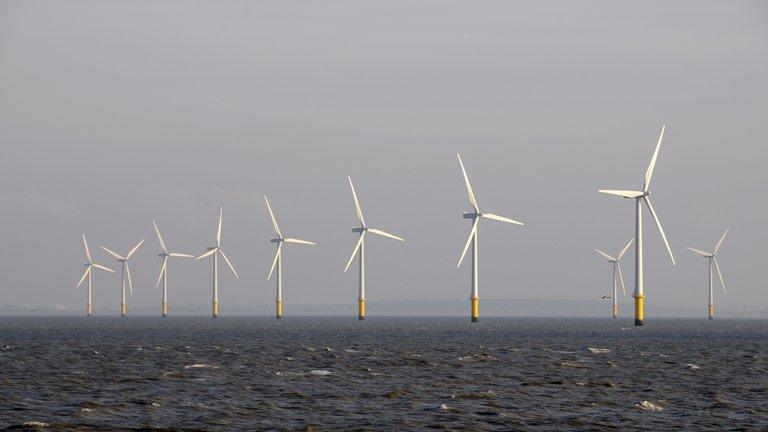Yorkshire offshore wind farm gets government approval
- Published
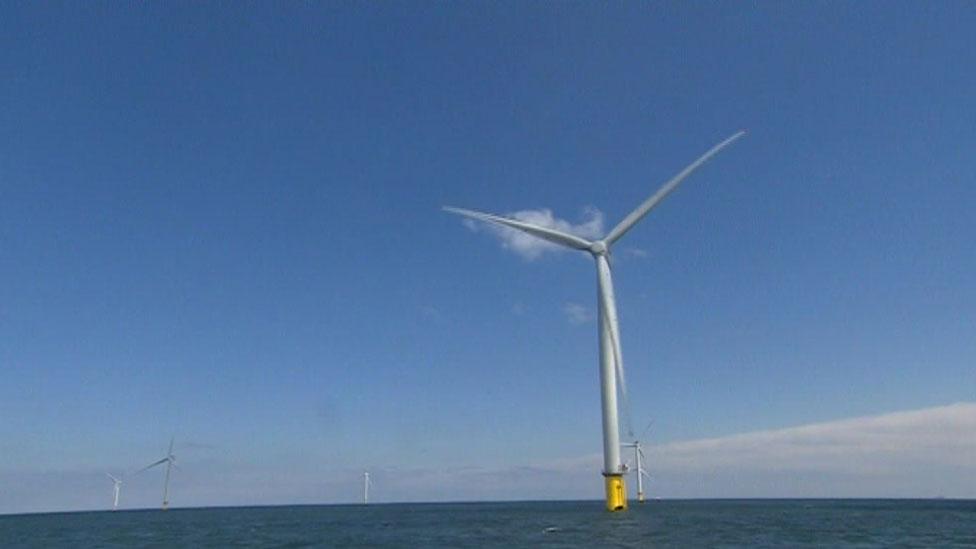
The wind farm is expected to start producing electricity by 2020
The second stage of the "world's biggest offshore wind farm" has been given the go-ahead by the government.
The Hornsea Project Two scheme would see 300 turbines built 55 miles (88 km) off the East Yorkshire coast and provide enough electricity to power almost two million homes.
Developer Dong Energy is already building a smaller site nearby.
The company said it would make a final investment decision on whether to construct the new site later.
'Exciting development'
Business and Energy Secretary Greg Clark said his decision, external to give consent would lead to "jobs and economic growth right across the country".
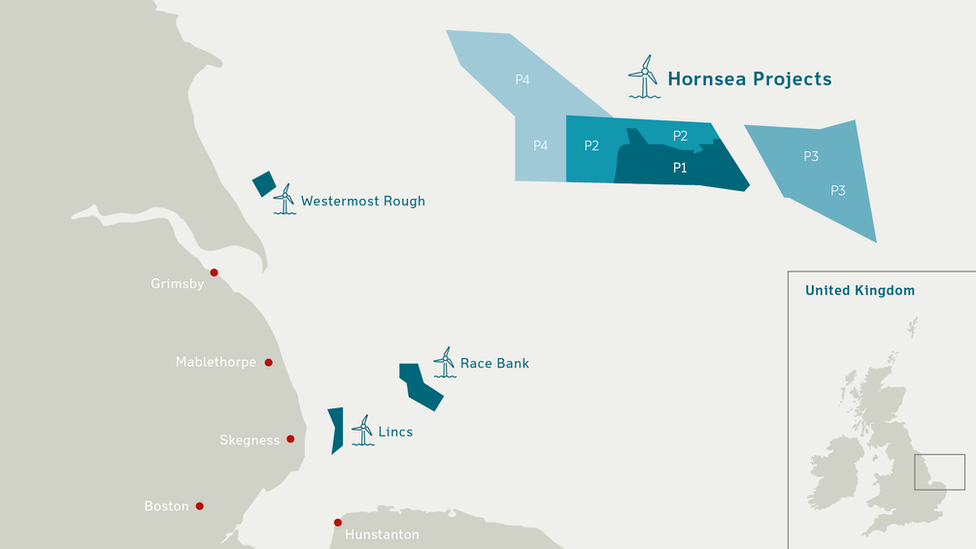
The wind farm is one of four projects, planned 55 miles (88 km) off the East Yorkshire coast
"The UK's offshore wind industry has grown at an extraordinary rate over the last few years, and is a fundamental part of our plans to build a clean, affordable, secure energy system," he said.
Brent Cheshire, Dong Energy's UK chairman, said development consent for the project was "very welcome".
"We have already invested £6 billion in the UK, and Hornsea Project Two provides us with another exciting development opportunity in offshore wind," he said.
Hornsea Project Two is the second stage of Dong Energy's planned development of the Hornsea Zone in the North Sea.
If built, the four wind farms would cover an area of 662 sq miles (1,725 km sq).
At 623 feet (190m) high, each turbine would be taller than the Gherkin building in London. The first of the turbines will be made in Siemens' newly-built Hull factory.
The aim is for Project One to be operational by 2020.
The energy firm said it expected to submit a planning application for Hornsea Project Three in 2018. If approved, construction was anticipated for sometime between 2022 and 2025.
- Published3 February 2016
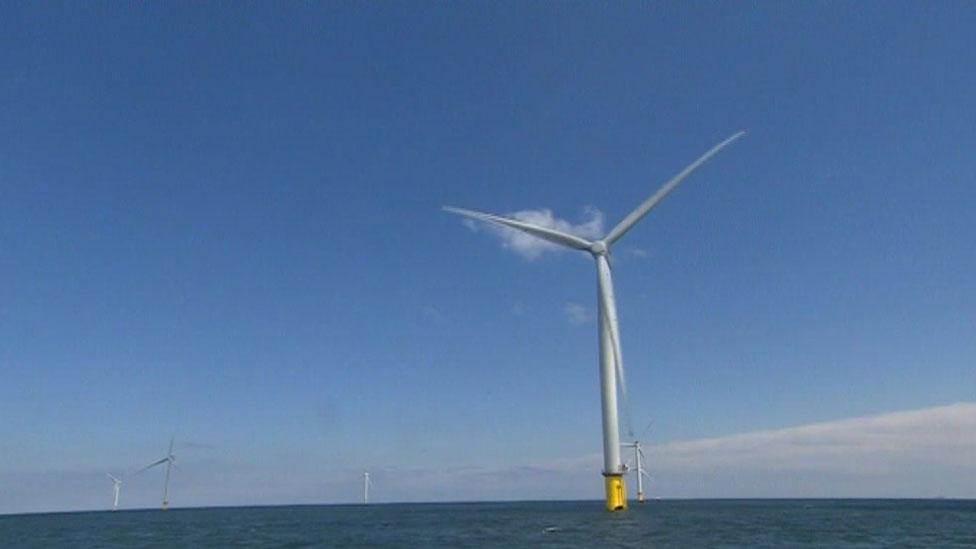
- Published22 July 2015
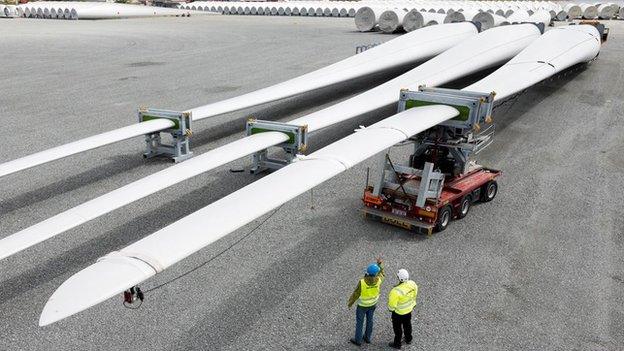
- Published10 December 2014
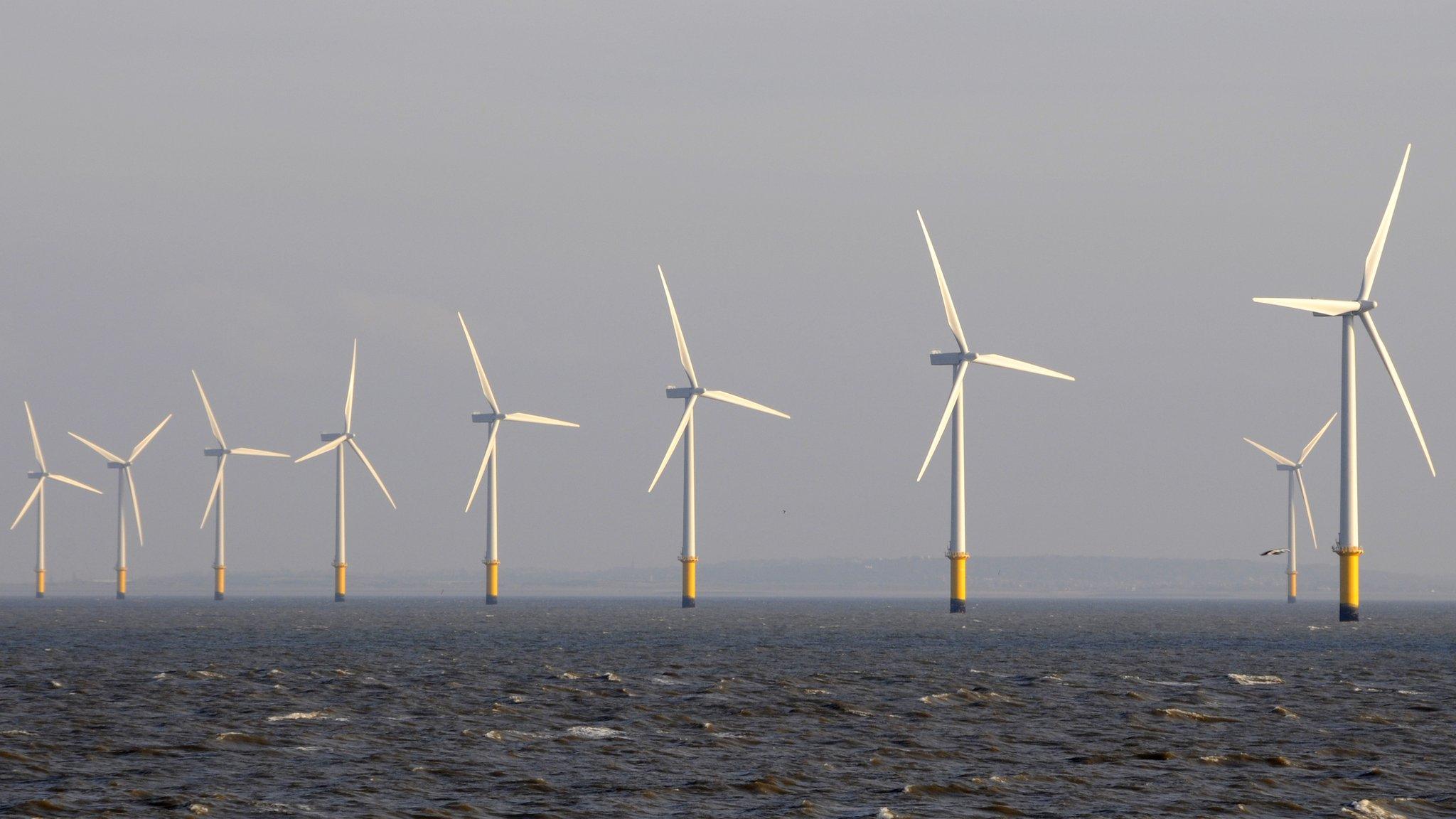
- Published27 June 2014
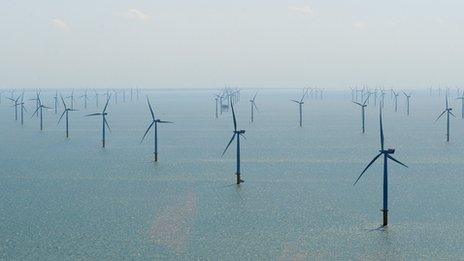
- Published15 August 2013
